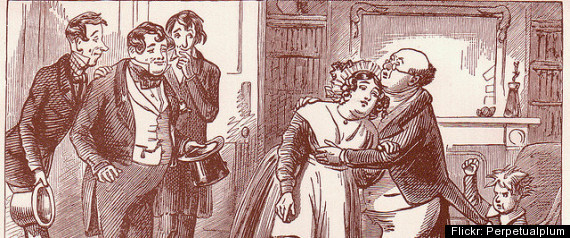KINGSTON, Ont. - For a 200-year-old literary figure, Charles Dickens has much to say about the issues of today.
So believes Queen's University English Prof. Robert Morrison, who says Dickens — born Feb. 7, 1812 — was both a man of his times and a forward-thinker.
In his many novels — including such classics as "A Christmas Carol," "David Copperfield" and "Oliver Twist" — Dickens wrote about issues that still resonate today.
Morrison says Dickens brought attention to child poverty, over-population, environmental degradation and greed.
The popular storyteller's 200th birthday is being celebrated Tuesday by admirers around the world.
Morrison says Dickens, who visited Canada briefly while on a reading tour, was the most popular author of his day and known world-wide.
"He is a man of his time but ... he does map in a lot of what still preoccupies us today."
"One of the things that I find really compelling about Dickens is his discussion of and sympathy for the vulnerable in society, especially children."
Dickens was able to depict 19th-century Britain as a powerful country at the forefront of progress and technology, Morrison said.
But as Dickens so cleverly put it: "It was the best of times, it was the worst of times."
"There's a tremendous amount of wealth and there are a whole bunch of people who are not sharing in any of it," said Morrison.
"That alienation and sadness in the lower classes among poor people, Dickens gives these people an incredibly powerful voice."
While a master at creating entertaining stories, comical characters and biting caricatures, the 19th-century writer also had his finger on the pulse of his times, says Morrison.
"Dickens represents alienation and poverty with a vividness and a chillingness that is remarkable. He really is very socially minded."
Original Article
Source: Huff
Author: canadian press
So believes Queen's University English Prof. Robert Morrison, who says Dickens — born Feb. 7, 1812 — was both a man of his times and a forward-thinker.
In his many novels — including such classics as "A Christmas Carol," "David Copperfield" and "Oliver Twist" — Dickens wrote about issues that still resonate today.
Morrison says Dickens brought attention to child poverty, over-population, environmental degradation and greed.
The popular storyteller's 200th birthday is being celebrated Tuesday by admirers around the world.
Morrison says Dickens, who visited Canada briefly while on a reading tour, was the most popular author of his day and known world-wide.
"He is a man of his time but ... he does map in a lot of what still preoccupies us today."
"One of the things that I find really compelling about Dickens is his discussion of and sympathy for the vulnerable in society, especially children."
Dickens was able to depict 19th-century Britain as a powerful country at the forefront of progress and technology, Morrison said.
But as Dickens so cleverly put it: "It was the best of times, it was the worst of times."
"There's a tremendous amount of wealth and there are a whole bunch of people who are not sharing in any of it," said Morrison.
"That alienation and sadness in the lower classes among poor people, Dickens gives these people an incredibly powerful voice."
While a master at creating entertaining stories, comical characters and biting caricatures, the 19th-century writer also had his finger on the pulse of his times, says Morrison.
"Dickens represents alienation and poverty with a vividness and a chillingness that is remarkable. He really is very socially minded."
Original Article
Source: Huff
Author: canadian press

No comments:
Post a Comment